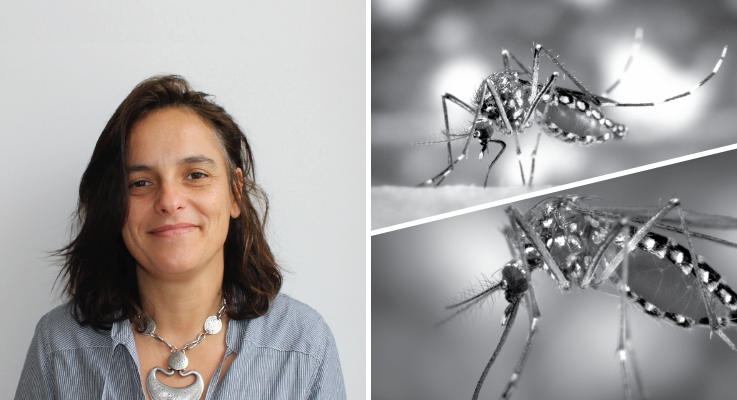
Carla Sousa’s (PI) Research Project entitled “Dengue prevention using genetically modified mosquitoes – current facts, literacy and public opinions” received approval for funding from FCT (PTDC/IVC-ESCT/2486/2014).
The project aims at providing objective theoretical grounding and experimental evidence to support decision-making regarding the adoption/rejection of genetic vector control strategies for Dengue/Chikungunya prevention.
Aedes aegypti was recently detected in Madeira Island (Portugal) and A. albopictus have repeatedly arrived and spread throughout European territories. The tools for control and prevention of Dengue and Chikungunya are very limited. There are no specific anti-viral treatment or vaccines, and prevention is based on lowering mosquito densities bellow epidemiological dangerous levels. This is mainly achieved by source reduction activities through the elimination mosquitos breeding sites, most of them located inside and in the surrounding of houses, or by the application of insecticides. The first approach, requires a long-term community engagement to be effective; the second beside the environmental hazards associated, is commonly ineffective due to the presence of insecticide resistance in mosquitoes populations.
Genetically modified mosquitoes (GMM), a.k.a. transgenic mosquitoes, have arisen as a new approach for Dengue/Chikungunya prevention and control. Genetic techniques are able to modify mosquitoes in order to block the transmission of the virus or to supress natural populations by the dissemination among them of mosquitoes carrying a lethal gene. On the other hand, the release of GMM entails environmental and ethical complexities. The decision to adopt or reject these approaches requires governmental approval and public acceptance. The latter is not only of ethical relevance but also critical for successful eventual GMM releases. Since these are performed in residential areas, it is known that they will be as effective as they have been tailored by local residents’ wishes, fears, expectancies and requirements. The use of GMM for disease prevention involves complex notions and technical vocabulary hardly comprehensible to most individuals. However, a minimum level of community’s literacy is required for an active participation in the public debate of this topic.
This project have the following objectives:
- to objectively collect and synthetize the critical existing information regarding the topic;
- to develop a tool to measure public literacy and describe literacy levels in two geographic locations of interest;
- and to explore public views and opinions in those regions regarding the use of GMM to prevent the introduction and spread of diseases.
Since this type of mosquito control strategy needs governmental approval,objectives 2 and 3 will be applied to common citizens and decision-takers (parliamentarian politicians).
Carla Sousa is member of Vector-borne diseases and pathogens (VBD) Research Group.